Is Link Building Worth It? Understanding the ROI of SEO
Sep 16, 2024
Written by Casey Bjorkdahl

Casey Bjorkdahl is one of the pioneering thought leaders in the SEO community. In 2010, Casey co-founded Vazoola after working for a Digital Marketing Agency for five years in New York City. Vazoola is now one of the fastest growing and most widely recognized SEO marketing firms in the country.
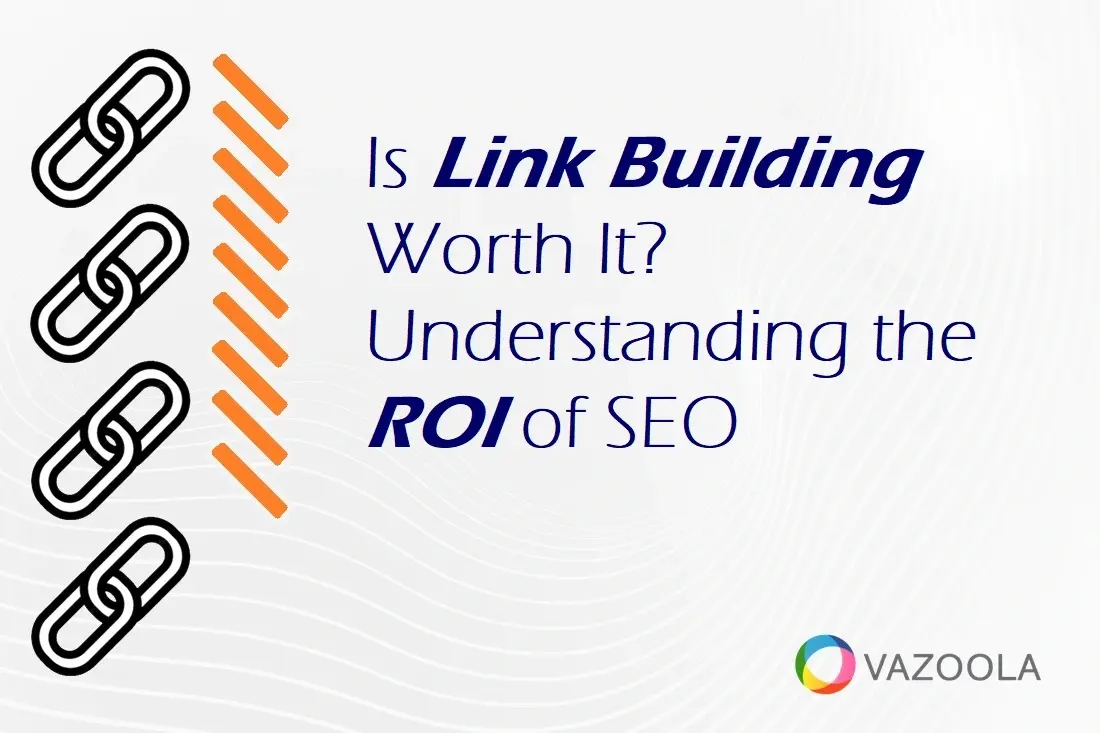
Marketing is serious business, we’ve learned as much from experience. Companies simply cannot afford to throw out the weakest link.
Instead, all efforts must be maximized for the highest possible SEO return on investment. This matters as the investment is significant. In 2024, advertising budgets will exceed 322 billion dollars.
With digital marketing taking the lead in today’s campaigns, many advertisers are putting dollars and time into link building efforts to strengthen their online presence.
How do businesses measure the ROI of any expenditure? They commonly divide cost by revenue, then multiple the difference by 100 (cost / revenue x 100). For example, if you spend $500 on a link building campaign that generates $2,500 in incremental revenue, that’s a 20% SEO ROI.
But how do you attribute that incremental revenue to your link building campaign? How do you measure link building?
We’ve identified a variety of strategies that businesses use to measure the effectiveness of marketing campaigns. However, these figures aren’t always easy to analyze.
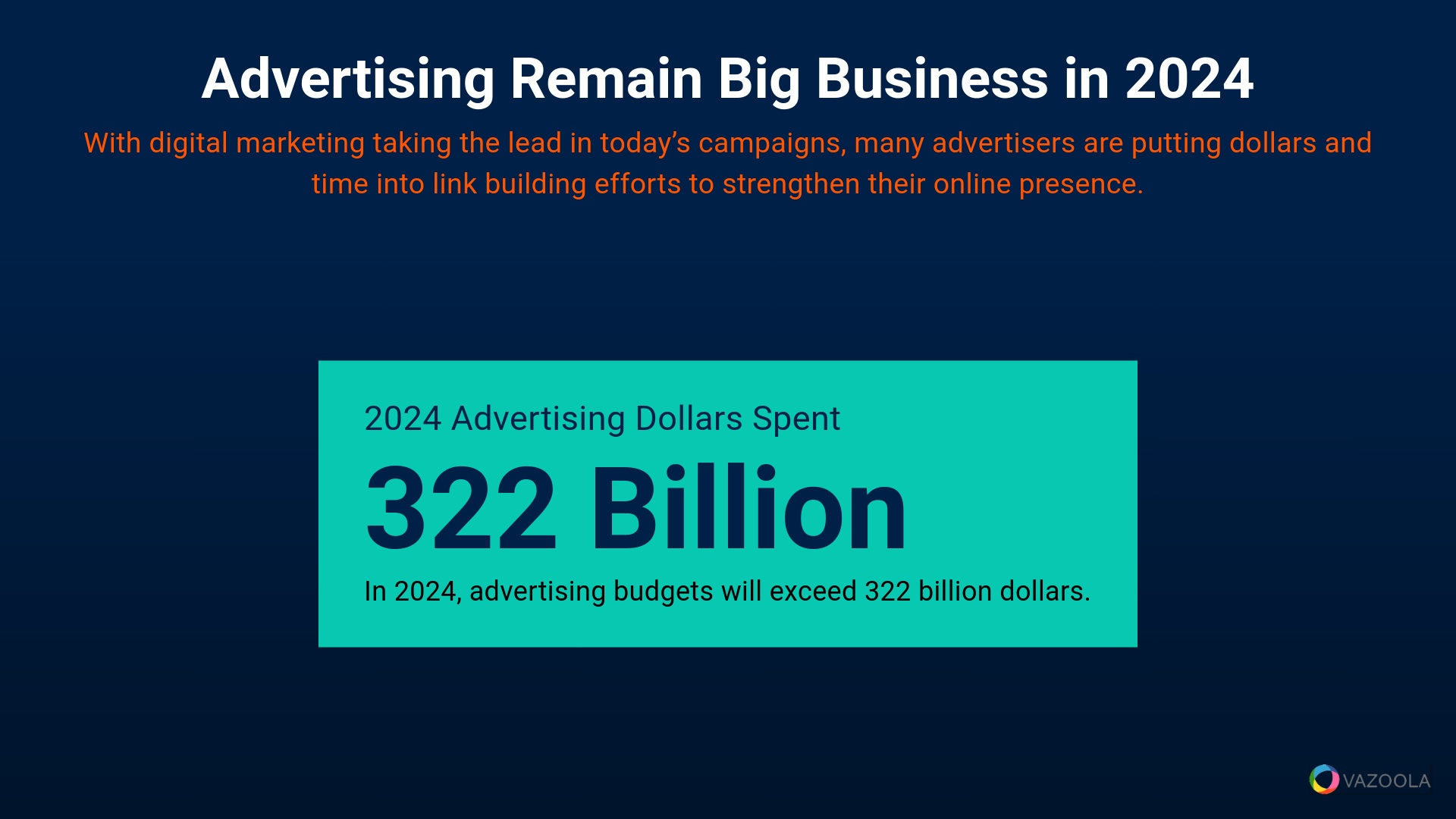
Key Takeaways:
-
Understanding the ROI of link building is necessary to maximize the efficacy of your SEO strategy.
-
Measuring link building ROI involves tracking key metrics like organic traffic, search engine rankings, and domain authority.
-
Tools like Google Analytics and other specialized SEO software helps track specific link performance and assess overall campaign success.
-
High-quality backlinks play a significant role in boosting a site's domain authority, which in turn can improve search engine rankings.
-
Domain Authority and Domain Rating, although not direct Google ranking factors, offer valuable insights into how search engines may perceive a site's credibility.
-
Consistently monitoring and optimizing your link building efforts can lead to sustained growth in organic traffic and better overall SEO performance.
Table of Contents:
The Tricky Business of Measuring Link Building
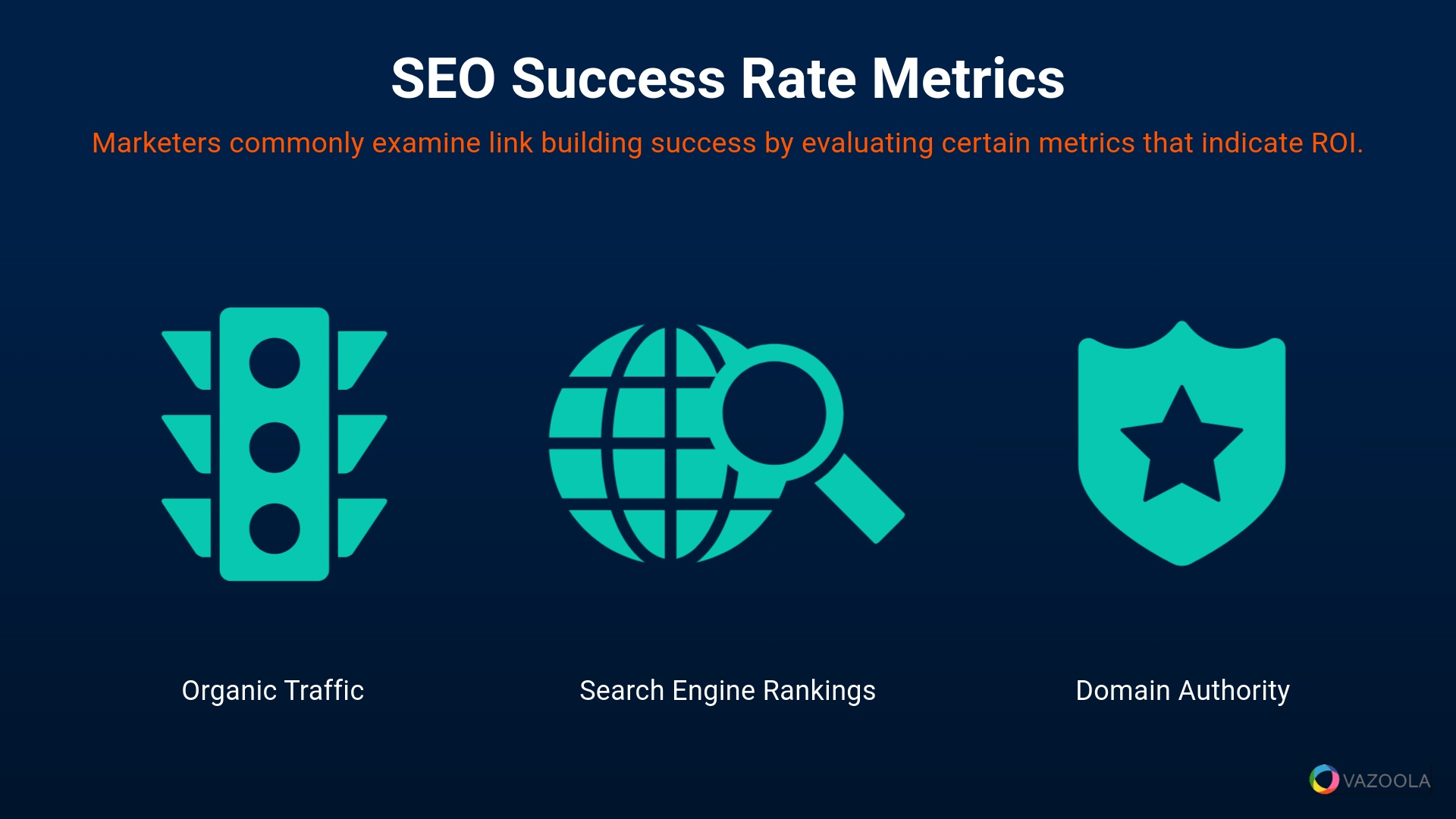
Measuring the results of a link build is not straightforward, either for the short or the long term.
Here at Vazoola, we’ve found that eternal links, as well as links to and from your website to other valid sites are a great way to build organic traffic.
Google Analytics reward relevant and useful links. Building links of high quality helps you rank higher in search engine results.
There are a few specific cases where you may see that links resulted in increased referral traffic and sales.
However, more often good links make your entire website and search engine optimization campaign better.
Therefore, finding specific ways to measure link building results are not straightforward. But there are some areas marketers commonly examine with techniques and tools to scrutinize link building ROI.
Pro Tips:
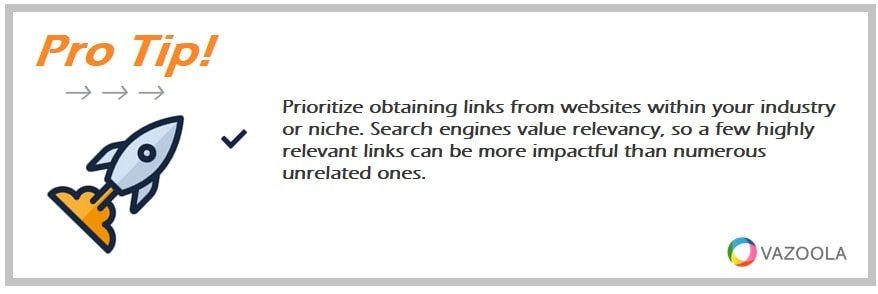
Prioritize obtaining links from websites within your industry or niche. Search engines value relevancy, so a few highly relevant links can be more impactful than numerous unrelated ones.
SEO Success Metric #1: Organic Traffic
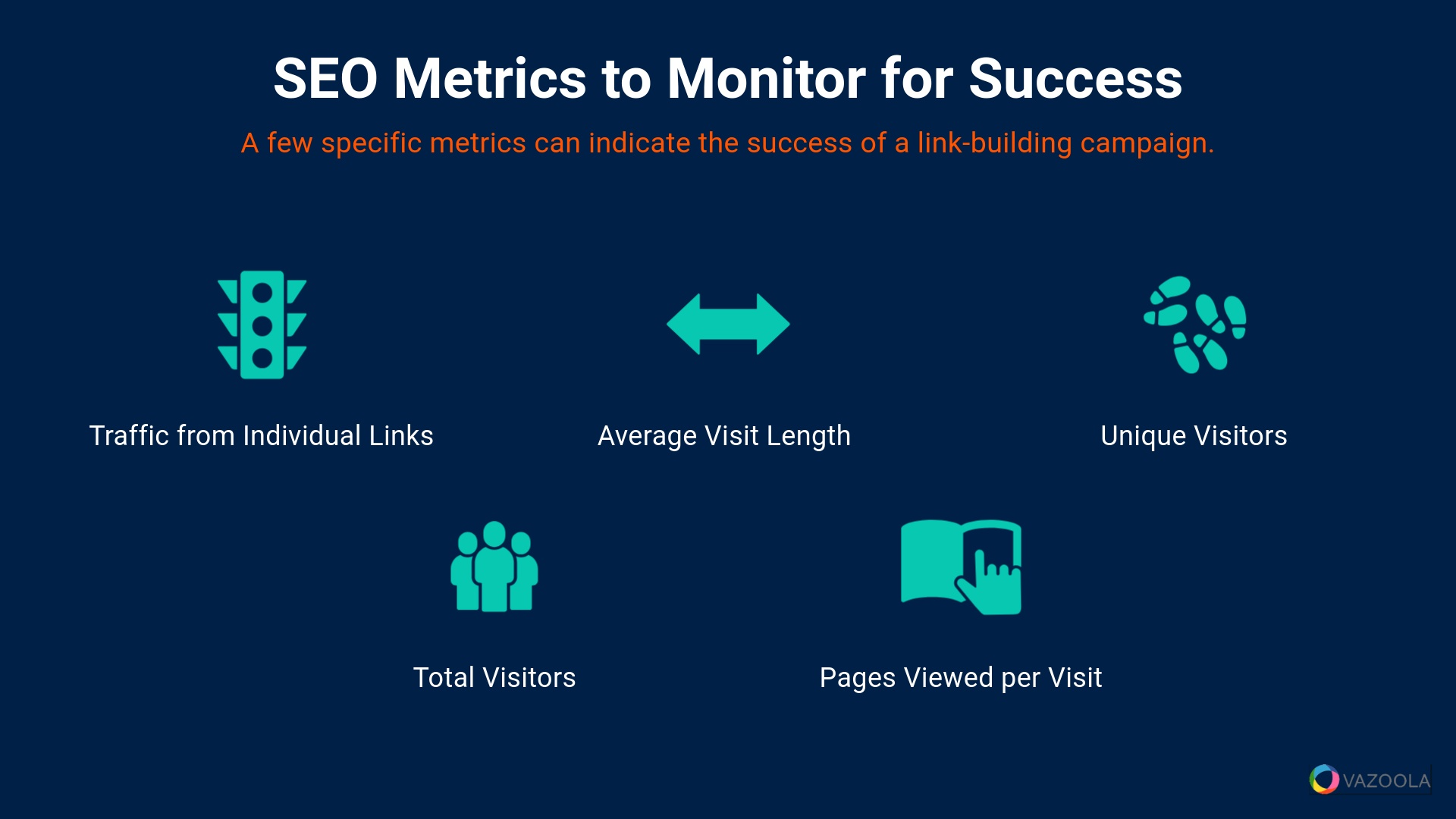
Lots of website visitors are not necessarily a good thing if you have a low conversion rate. If nobody is buying anything, you are not generating revenue.
The best way to determine specific link value is to track traffic from individual links. Google Analytics is a helpful tool for this task, as are several of our free tools at Vazoola.
But there are also numerous other software packages you can use for this purpose that give you a variety of SEO metrics such as:
-
• Average visit length
-
• Unique visitors
-
• Total visitors
-
• Pages viewed per visit
There are many other measurements as well, and you should study what you feel are essential aspects. For example, some marketers look at total visits, while others look at page views.
The goal of your specific link building campaign determines which metrics you use to determine success.
Google’s program, for example, lets you set up eCommerce tracking and sales goals. These elements can show you how many conversions specific links have generated for you during the campaign term.
Pro Tips:
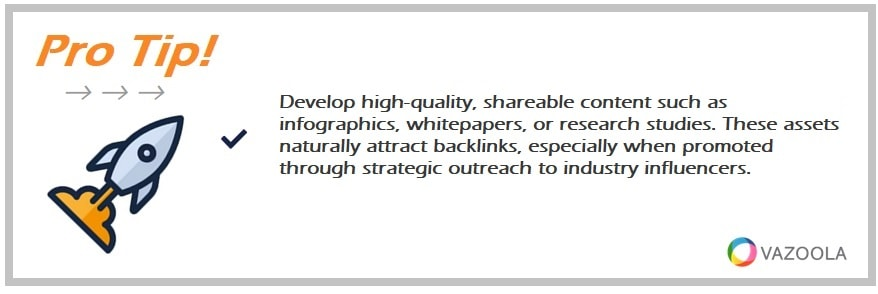
Develop high-quality, shareable content such as infographics, whitepapers, or research studies. These assets naturally attract backlinks, especially when promoted through strategic outreach to industry influencers.
SEO Success Metric #2: Search Engine Rankings
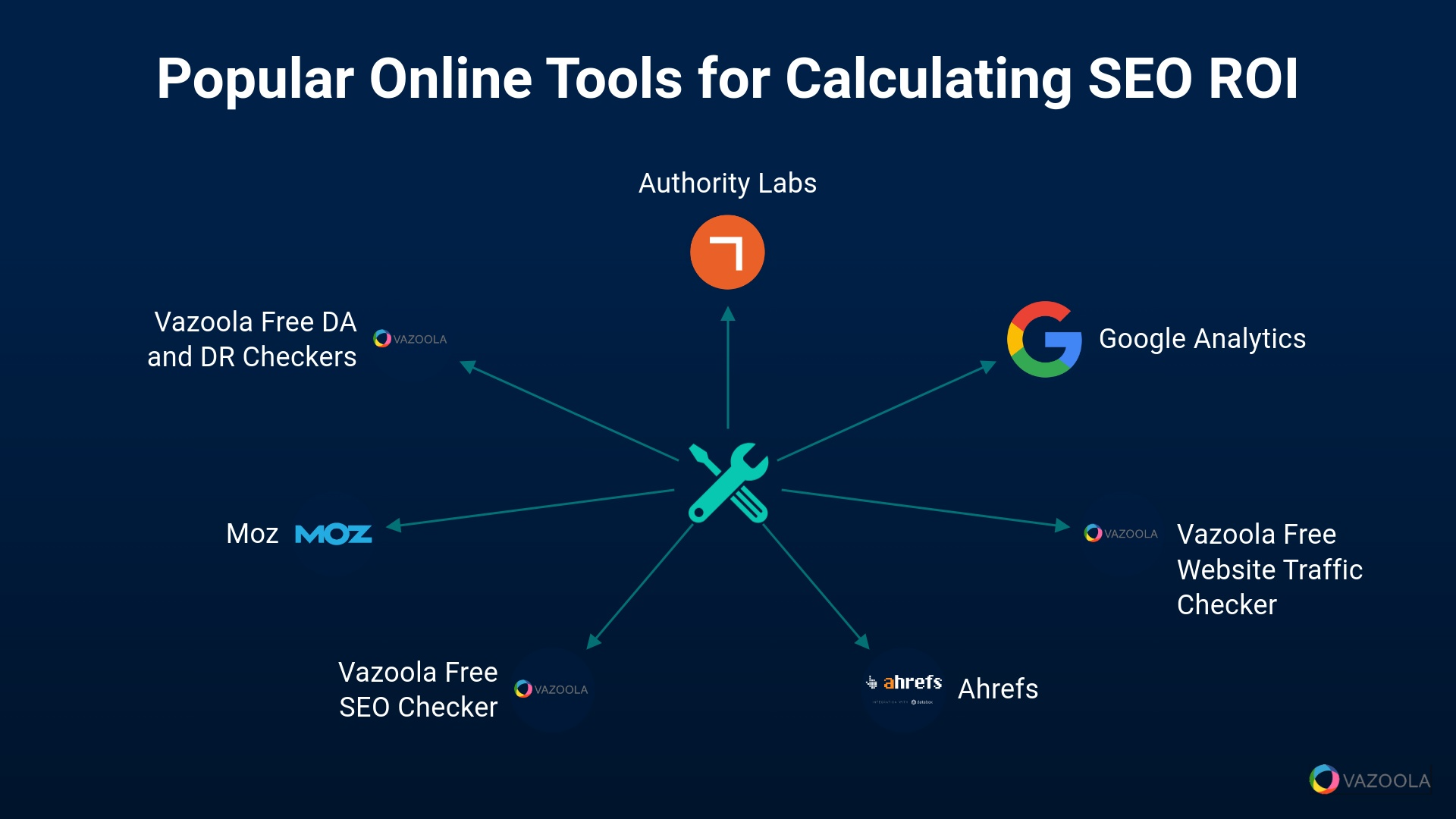
It makes sense that if you come up in the top three on the first search engine results page, you will probably get more traffic than if you showed up on page 6.
However, rankings are not always what they seem. You could get more conversions on page 6 than a poor site ranking at number three.
Therefore, a quality website with well-written, engaging material is so important. People share relevant information and are more likely to trust a quality site than a sloppy one.
You can use advanced tools such as Moz and Authority Labs to track the value of rankings if you want an elaborate analysis of numerous keywords.
However, you do not need complicated methods to determine how your search engine rankings are serving you.
Use a spreadsheet and look at the pages yourself. Remember too that SERPs are mercurial and change constantly.
With a lot of money and effort going into digital link building campaigns, it is vital to be able to measure how well the campaigns are working.
However, analyzing the ROI of SEO can be difficult. In our experience, the best way to do this is to decide what metrics matter most to you and employ specific analytical tools to help you make the most of digital marketing to grow your business.
Pro Tips:
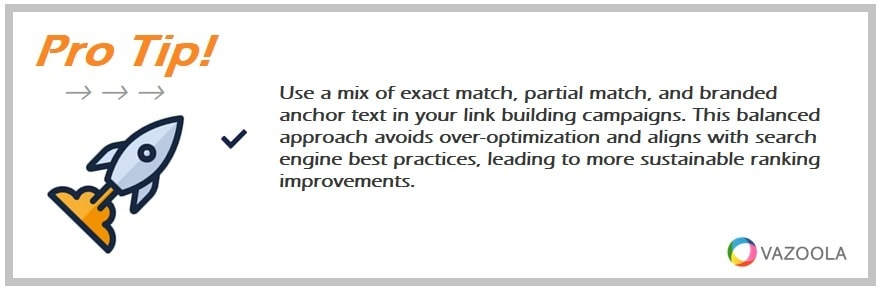
Use a mix of exact match, partial match, and branded anchor text in your link building campaigns. This balanced approach avoids over-optimization and aligns with search engine best practices, leading to more sustainable ranking improvements.
SEO Success Metric #3: Domain Authority
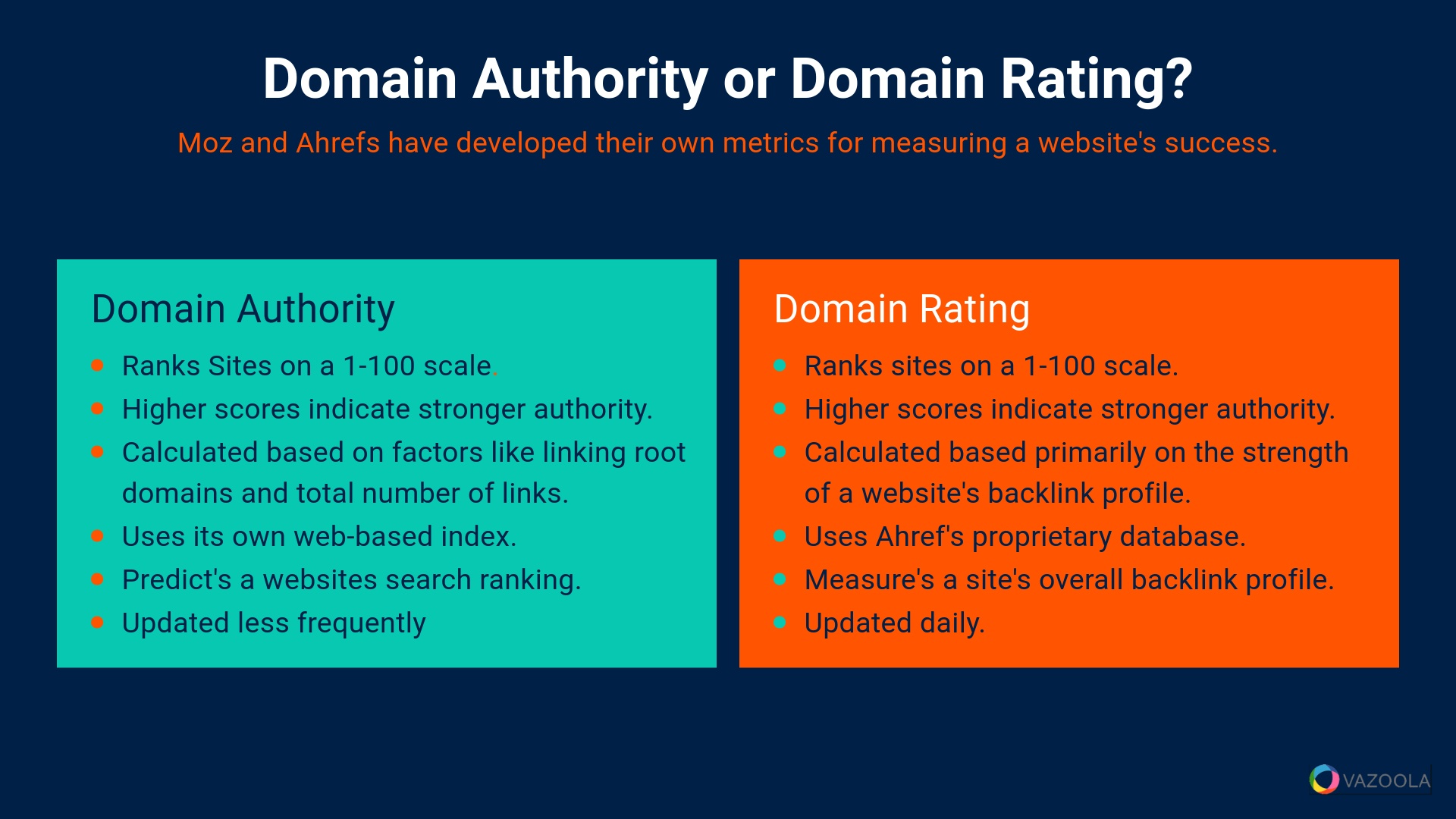
Domain Authority and Domain Rating are metrics developed by companies like Moz and Ahrefs to estimate the overall strength or authority of a website.
The platforms use proprietary algorithms to assign a score, usually on a scale from 1 to 100. The metrics predict how well a site will rank on search engine result pages. The higher the score, the more likely the site is considered to be authoritative in its niche.
Moz’s Domain Authority is calculated using dozens of factors, including the number of linking root domains and the number of total links. The idea is to assess not just the quantity of links, but the quality and relevance as well.
Likewise, Ahrefs has its own metric called Domain Rating, which also evaluates a site's link profile with a slightly different approach and algorithm.
Domain Authority or Rating is not a direct ranking factor used by Google, but it’s a useful comparative metric for understanding how search engines might view your website's credibility.
A higher Domain Authority or Rating often correlates with better SEO rankings, increased organic traffic, and stronger visibility in search engine results.
Link building plays an important role in boosting your site’s authority. When your site earns links from other reputable websites, search engines interpret these backlinks as endorsements of your site’s quality and relevance.
High-quality backlinks from sites with strong Domain Authority or Domain Rating can significantly impact your own site's authority, helping to improve your rankings over time.
Pro Tips:
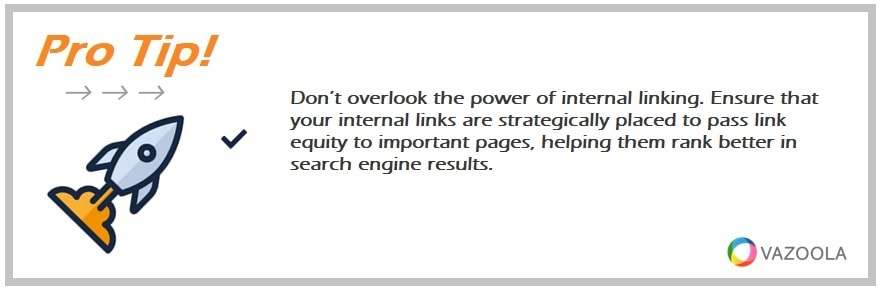
Don’t overlook the power of internal linking. Ensure that your internal links are strategically placed to pass link equity to important pages, helping them rank better in search engine results.
Maximizing Your Link Building ROI: What’s Next?
Is your link-building strategy paying off?
Measuring the ROI of your link building efforts can be a complex endeavor. Still, it's important to make sure your SEO strategy drives real results.
By tracking key metrics like organic traffic, search engine rankings, and domain authority, you’ll gain valuable insights into your campaigns’ efficacy.
Are you getting the most out of your link building investment? If you're ready to see how expert link building can boost your business, contact our team at Vazoola today for a free demo and discover the difference a strategic approach can make.
Pro Tips:
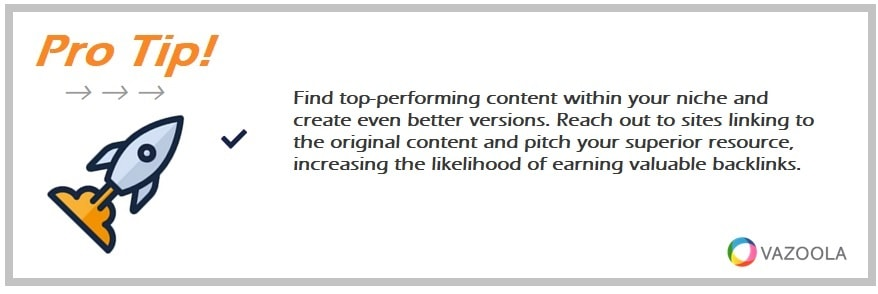
Find top-performing content within your niche and create even better versions. Reach out to sites linking to the original content and pitch your superior resource, increasing the likelihood of earning valuable backlinks.

